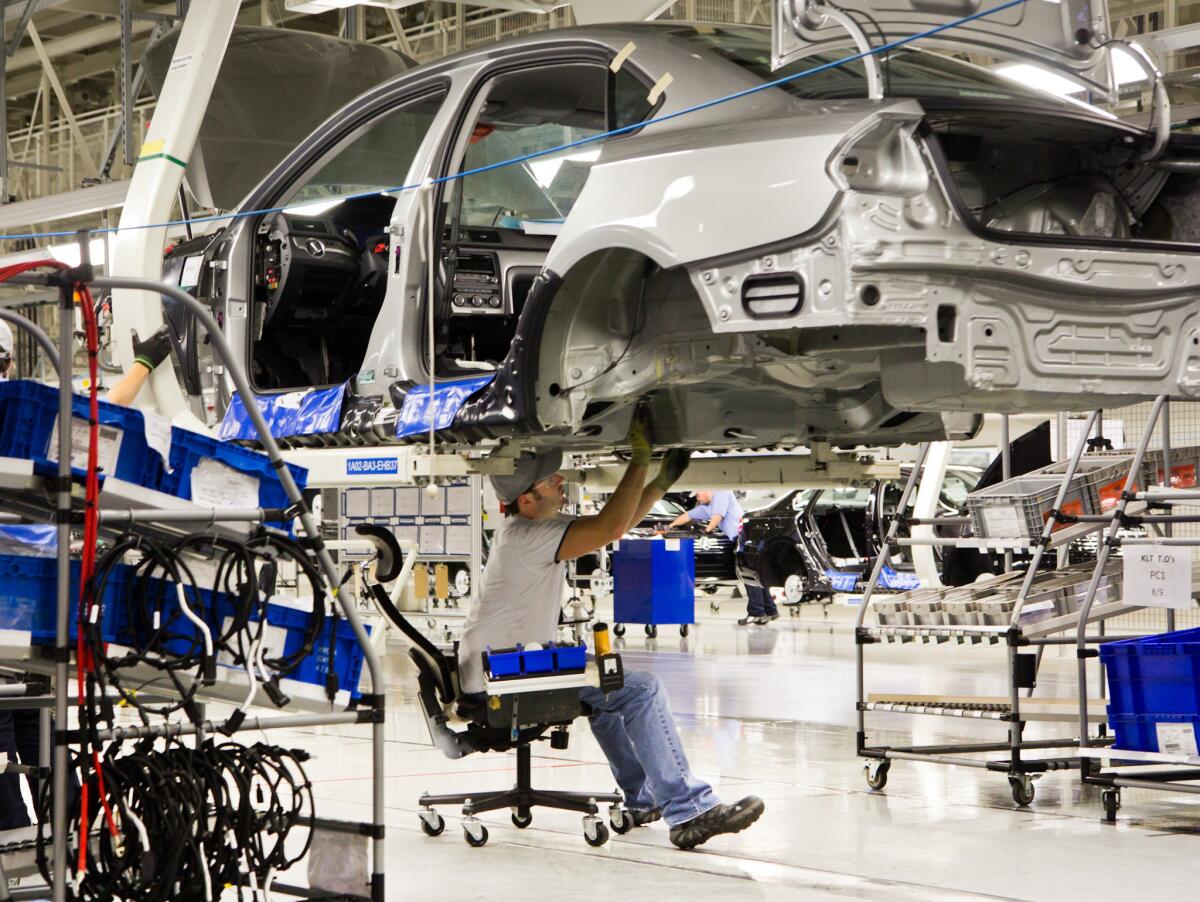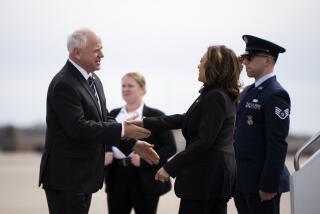VW workers’ vote tells UAW it needs a better sales pitch

The United Auto Workers’ failure to organize workers at Volkswagen’s plant in Chattanooga, Tenn., last week led its supporters to complain bitterly about their opponents’ tactics, and particularly the rhetoric and threats by some state Republican leaders.
The GOP scaremongering (Chattanooga will become Detroit! VW will shun Tennessee in favor of Mexico!) was certainly over the top, and the threat to withhold tax incentives from future VW factories was unseemly. Still, it’s hard to blame the hyperbolic warnings and threats for the 712-626 vote against the UAW.
For starters, the Republicans’ arguments about future VW investments were largely irrelevant to the question facing each worker, which was simply, “Will unionizing make things better or worse for me?” Judging from what the company had been saying, there didn’t seem to be much of a downside to the union prevailing. All of VW’s other major production facilities are already unionized, and the company -- which didn’t oppose the organizing drive -- said its future investments wouldn’t be affected by the vote.
The more likely problem was that the majority of workers voting didn’t see what they’d gain by committing a portion of their salary to the UAW.
For some workers, paying union dues is akin to making an investment in higher pay and better job security. For others, it’s a way to obtain benefits (such as pensions or superior health insurance) that their employer couldn’t or wouldn’t provide otherwise.
In Chattanooga, however, the drive to unionize wasn’t powered by resentment over wages or working conditions at the plant. Nor did VW management treat workers as imbeciles. “VW workers say they often get inquiries from plant management about their job satisfaction and ideas for improvements — and that management acts on them,” wrote Tom Walsh of the Detroit Free Press. “A happy bunch, apparently.”
Instead, the UAW sold unionizing as a way to give workers a more formal voice in the plant’s operations by allowing the creation of a local works council. The goal, UAW President Bob King said in a news release this month, was “to set a new standard in the United States for innovative labor-management relations that benefits the company, the entire workforce, shareholders and the community.”
Right. And workers are supposed to pay for that privilege?
OK, the promised benefits to unionizing weren’t quite that abstract. By having a local works council, employees in Tennessee would gain a seat on VW’s global labor-management committee, which would give them more say in the automaker’s investment decisions worldwide. As a VW paint technician put it in the release, “Global representation means Chattanooga workers may have a strong voice in seeking new products and bringing more jobs to Tennessee.”
Still, that’s not as compelling a motivation as, say, an employer that doesn’t pay a living wage, that withholds raises while piling on profits or that doesn’t have the scale to offer a decent benefits package. Workers in Chattanooga apparently didn’t face any such outrages, which made them less interested in changing the status quo.
It’s certainly possible that the horror stories offered by GOP leaders made at least some workers more skeptical of the UAW’s pitch. Yet the fundamental problem is that the pitch itself wasn’t compelling. And when you’re asking workers to pay a nontrivial amount in dues, you’d better have a compelling value proposition to offer.
(For the record, I was a member of the Communications Workers of America when I wrote for the San Jose Mercury News in the late 1990s.)
ALSO:
The wrong way to fix Obamacare
North Korea’s atrocities: What is the world going to do? Not much.
Follow Jon Healey on Twitter @jcahealey and Google+
More to Read
A cure for the common opinion
Get thought-provoking perspectives with our weekly newsletter.
You may occasionally receive promotional content from the Los Angeles Times.











